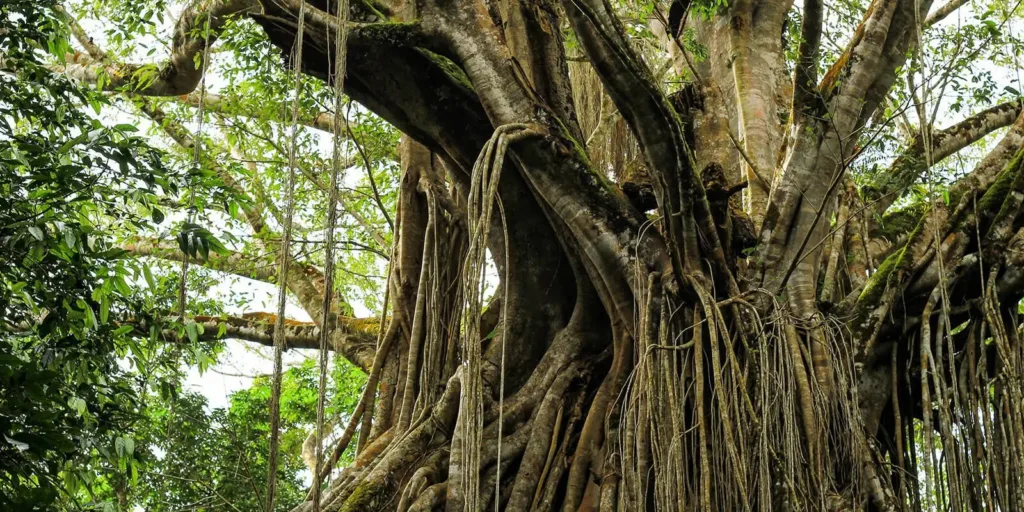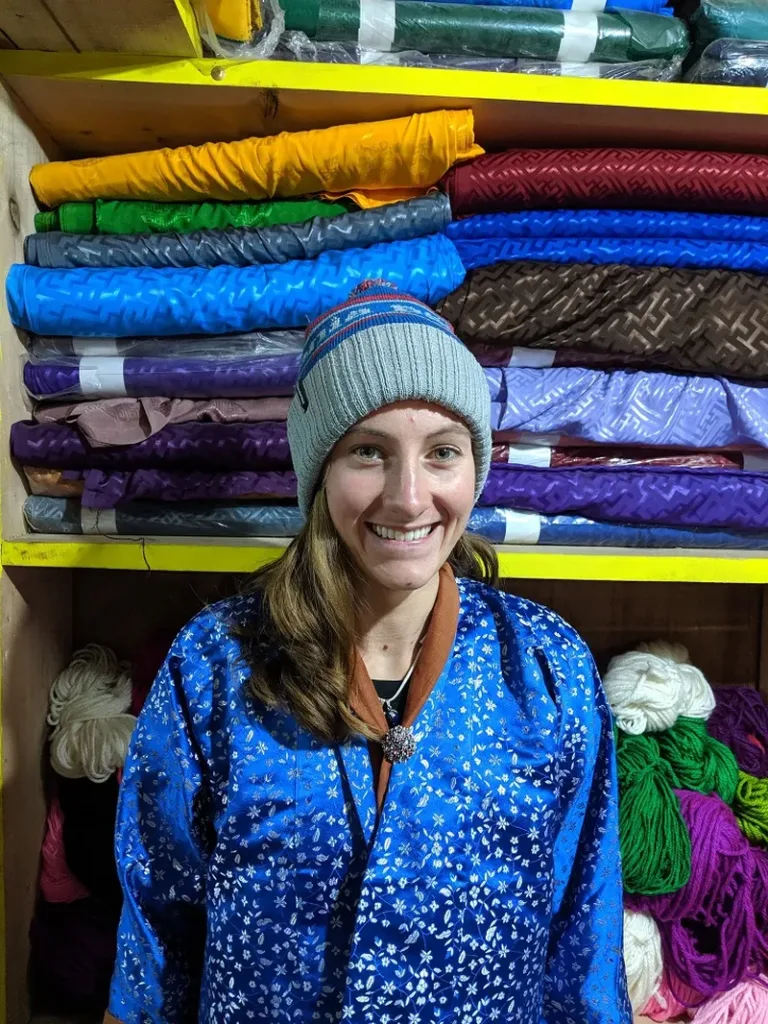
By: Ani Williams
COVID-19: A Student’s Perspective
I am currently sitting on the SFS center terrace watching the sun come up over the surrounding Himalayan peaks while I sip my coffee. Dogs are barking in the distance, the air is crisp and cool, and clouds that settled in the valley overnight are slowly dissipating. My mind is here, but it is also not. It’s with my family and friends at home and my friends who are studying abroad all over the world as we all take on the challenges of COVID-19 in our respective geographic locations.
When I decided to spend my spring semester abroad, I was excited to live in the Himalayas, and eager to learn about Bhutan’s environment. Like most people, I was nervous about trying to make a home on another continent, but excited by the prospect of this challenge. While we have all had to face this challenge, students abroad during this semester have also had to face the unexpected challenge of the COVID-19 pandemic. No one signed up for this challenge, but this is the situation we have been given and I think there really is a lot to be learned from it.
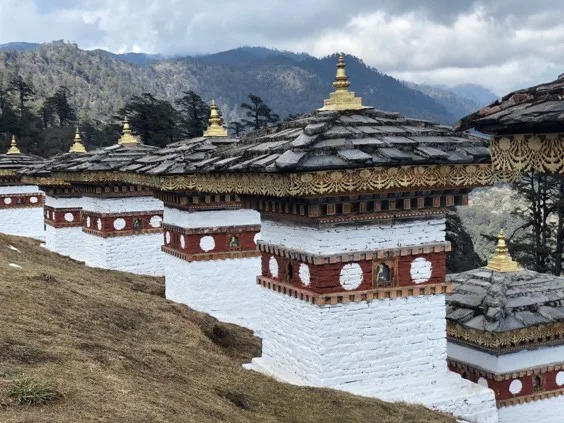
Dochula Pass
The SFS Bhutan program focuses on Himalayan Environment and Development. Bhutan is a unique country in that it really just opened up to the rest of the world in the 1960’s and is currently in the midst of an incredible time of transition due to globalization and development. Bhutan is a small country and depends on India for imports, including timber, food, and machinery. But Bhutan also exports an incredible amount of hydropower to India and in this way these two countries are not only geographically adjoining but also mutually interdependent. Today, tourism also plays an important role in Bhutan’s economy and any foreigner who visits must pay a daily sustainable development fee and travel with a local guide. At the beginning of our semester we considered Bhutan’s difficult task of balancing tourism with local traditions and environmental conservation. COVID-19 is causing us to revisit our class conversations – what will be long-term consequences if Bhutan’s borders are closed and imports / exports are halted, what will happen as tourism in Bhutan declines? And I think this is a global worry – COVID-19 does not discriminate based on nationality so in a way, the world is united against this, but countries also have to make difficult decisions about their accessibility and the health of their own people.
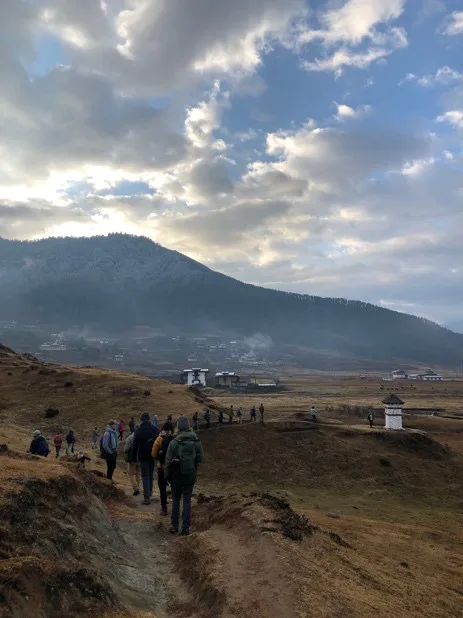
Phobjikha Valley
Every day COVID-19 shows the world just how interconnected we really are. In this way, the rapid spread of COVID-19 has fit into our classroom discussions of globalization and intercountry relations well and continues to push our thinking. As countries begin to make decisions to close borders, a country’s lack of self-sustainability could pose a real problem. While most of the time (hopefully) we are not faced with a global pandemic such as COVID-19, I think it challenges us to consider whether countries should be more self-sustaining. In February our professors here in Bhutan asked us to consider whether globalization is a good thing. Should countries be so connected and interdependent? It’s complicated. This is a question I think we are all considering as we watch COVID-19 spread around the world, directly illustrating human travel and connection. And as we consider how to ensure equal access to testing and healthcare as we combat this global pandemic. Here in Bhutan, COVID-19 has given us all an opportunity to reflect on the privilege we have to cross so many borders and live so far away from our homes in a more real and urgent way as well as a new perspective with which to view potential consequences of this interconnection.
Countries across the world are responding to COVID-19 differently. I have been impressed by how quickly Bhutan responded to COVID-19 and the immediate seriousness they impressed upon the matter of health and safety in their country. I have also been able to watch from afar as my home country, the United States, responds differently. And over meals with my professors, I have been able to ask questions about how COVID-19 affects and is affected by a country’s governmental structure and political environment. No one can really predict what’s going to happen in the coming weeks, but I can only hope that we are all able to take some deep breaths, wash our hands, and, since we cannot change the presence of COVID-19 and the implications it has had for our semester abroad, reflect on what we can learn from it.
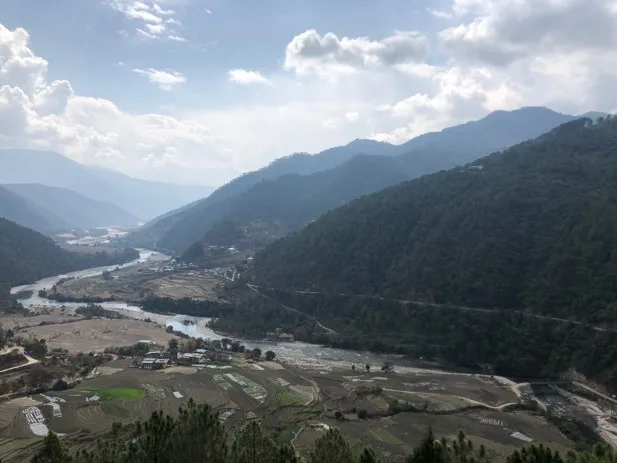
Punakha
For the most up-to-date information on SFS’ response to the COVID-19 novel coronavirus and how it is impacting our programming, please visit https://fieldstudies.org/health-safety-covid-19/.

